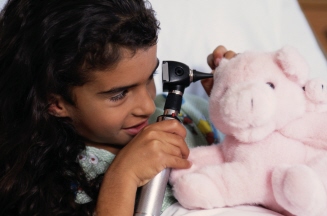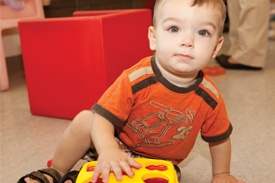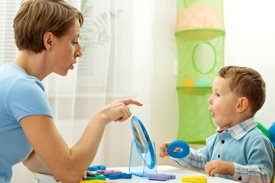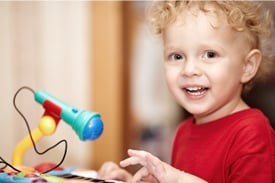What is a stroke?
Stroke Survival: When Speech and Language are Affected
Tags: Speech, Language, Communication, Stroke, Learning, Voice, talking
10 Signs Your Child May Have Hearing Loss
- “Huh? What Did You Say?”
As parents, we all know that hearing and LISTENING are not the same. But, if it seems your child is experiencing hearing issues, even when it appears he/she is listening well, you should ask your child’s physician for an in-office hearing test or referral.
- Failed School Screening
School-aged children routinely have vision and hearing screenings conducted at school. Generally, parents are NOT notified unless there is a concern. If you receive a notice from your child’s school that he/she did not pass the hearing screening, please follow-up as the notice recommends.
- Teacher’s Report— Part I
Let’s face it, teachers spend A LOT of time with our children and are likely the first to notice if your child is experiencing hearing issues. Though, at times, it can be difficult to separate attention/focus from actual hearing ability, if your child’s teacher shares a concern, you should have it checked out.
- Teacher’s Report— Part II
Have you noticed a sudden drop in your child’s grades? Listening can be a tiring task when struggling with hearing. It can be easy for your child to “tune out” the teacher’s lessons, which can then impact his/her grades.
- “Why Is That Television So LOUD?”
Many kids like to raise the volume of the television. For some shows, like cartoons, it can make them seem more exciting and fun, but it could also be a sign that your child is experiencing hearing issues. If your child insists that he/she cannot hear the television at a level that you believe is typical, consider getting your child’s hearing tested.
- “Inside Voice, Please!”
Some hearing problems interfere with our ability to monitor the volume of our own voice. If your child seems to be talking either too loudly (or too softly), consider having his/her hearing checked.
- Recent Upper Respiratory Infection, Colds, Allergies, Flu
Anything that causes swelling in the back of the nose/throat area can cause secondary problems with middle ear health and hearing. Even if there is no fever or pain, your child could still have trouble hearing. If your child recently had a bad cold and, a couple of weeks later, seems to not be hearing well, have it checked.
- “I’m Hearing a Funny Sound!”
If a child reports any unusual noises in their head or ears (a ringing, rushing, roaring, beeping, hissing, etc.), particularly after being exposed to loud sound, have his/her hearing checked.
- Eagle Eyes
Children are marvelously adaptable to using what senses they can to figure out what’s going on and communicate! If you notice that your child seems unusually attentive to visual information and watching the faces of people speaking, have his/her hearing checked.
- “I Thought You Said…”
Does your child seem to mishear or misunderstand what was said? Some hearing problems are subtle and can interfere with hearing certain speech sounds. If this is happening, consider a hearing test.
Tags: Communication, Hearing, Teens, Hearing Loss
Will Accent Modification Diminish My Identity?
Learning the rules of English will not erase your accent but will make it easier for others to understand you. Your identity will not, and cannot, be diminished. However, accent modification training can, and will, expand your abilities and allow you to communicate optimally.
Tags: Speech, Language, Communication, Learning, talking, Accent Modification
10 Tips for Working with an Interpreter
If you’ve never worked with a Sign Language interpreter before, you may not be aware of how to prepare for and conduct yourself during this interaction. Don’t worry – below are several guidelines that will help make a positive experience for you, the interpreter, and most importantly, the Deaf or Hard of Hearing (HoH) individual.
Tags: Communication, Support, Deaf, Hard of Hearing, American Sign Language, Interpreting, ASL Interpreter, ASL
Access to Services is Crucial for Deaf and Hard of Hearing
The loss of the ability to communicate can mean a loss of quality of life, especially for those who are Deaf and Hard of Hearing (HoH). The Americans with Disabilities Act (ADA) protects the civil rights of all Americans, regardless of ability, by requiring businesses and organizations to offer reasonable accommodations that allow for effective communication. For Deaf/HoH people, this could mean anything from captioning, texting, video relay services, or sign language interpreting services, dependent on the individual. The vision of Cleveland Hearing & Speech Center (CHSC) is a community where everyone communicates effectively.
Tags: Communication, Support, Deaf, Hard of Hearing, American Sign Language, Interpreting, ASL Interpreter, ASL
When and How Should I Read to My Child?
Experts recommend you read to your child as often as you can and that you strive to have at least one scheduled reading time each day. Choosing regular times to read (especially before naps and bedtime) is a way to help your child learn to sit with a book and relax. But you can read anytime your child seems in the mood.
If your toddler will let you, hold him or her in your lap when you read. It's a great spot for:
Tags: Speech, Language, Communication, literacy, Learning, Voice, toddler, talking
The Stages of Infant Speech Development
Children begin developing speech as an infant. By 6 months, babies coo and play with their voices by producing sounds such as "oo," "uh," "mm," "da," and "goo." Children learn speech by imitating the sounds they hear. Actions such talking about what you are doing during the day, singing songs and reading books expose your child to a variety of sounds that he or she will begin imitating.
Tags: Speech, Language, Communication, Voice, talking
Can You Understand Your Child's Speech?
It’s common for most children to make some mistakes as they learn to say new words. Different sounds are mastered at different ages. Consistent, correct sound production will vary from child to child. When mistakes continue past a certain age, that’s when it's considered a speech sound disorder. Speech sound disorders include problems with articulation (pronouncing sounds correctly) and phonological processes (errors with sound patterns).
Tags: Speech, Language, Communication, Voice, toddler, talking
Why Should I Read to My Toddler?
Reading aloud is an important way to help your child make the transition from infancy into their toddler years. Between the ages of 1 and 3, your child will have triumphs and challenges. Studies show that children with an active exposure to language have social and educational advantages over their peers - and reading is one of the best ways to expose your child to language.
Tags: Speech, Language, Communication, reading, literacy, Learning, toddler
How Hearing Loss Affects Speech-Language Development
Children learn to talk by listening to those around them. The first few years of life are a critical time for speech and language development. Children must be able to hear speech clearly in order to learn language. Fluctuating hearing loss due to repeated ear infections might mean the child doesn't hear consistently and may be missing out on critical speech information. Permanent hearing loss will also affect speech and language development, especially if it is not detected early. The earlier hearing loss is identified and treated, the more likely the child will develop speech and language skills on par with children who aren’t experiencing hearing issues.
Tags: Speech, Hearing Aid, Hearing Aids, Communication, Hearing, Deaf, Hard of Hearing, Hearing Loss, Learning, Voice, toddler, talking




















